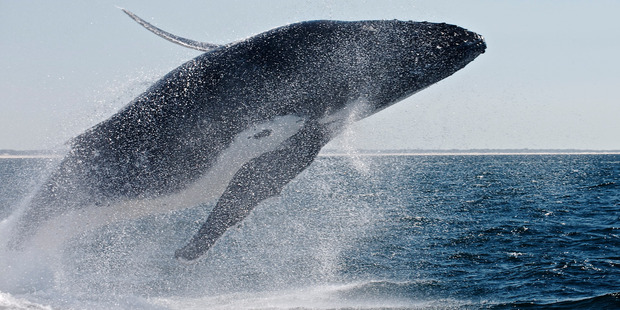
Hundreds of scientists have rallied against a new Japanese proposal to kill whales in the name of research - a plan one New Zealand marine biologist calls whaling in disguise.
Nearly 500 researchers from 30 countries have signed a letter to the International Whaling Commission's scientific committee, calling on it to reject the plan.
The committee, currently meeting in San Diego, is reviewing Japan's proposal to renew large-scale whaling operations in the upcoming summer season in the southern hemisphere.
Last year, the International Court of Justice ordered Japan to close its "scientific" whaling programme in Antarctica, concluding that its JARPA II programme did not comply with the purpose of scientific research under the IWC and was therefore not science.
The court also found the whaling operations violated the moratorium on commercial whaling and the integrity of the Southern Ocean Whale Sanctuary, where the killing of these marine mammals was forbidden independently of their conservation status.
Following the ruling, the IWC approved a New Zealand proposed resolution to tighten the rules around research whaling, and passed a resolution to uphold the ICJ ruling that scientific whaling in Antarctica was illegal and no further permits should be issued.
But in November, Japan submitted to the IWC its new "Proposed Research Plan for New Scientific Whale Research Program in the Antarctic Ocean" (NEWREP-A), which focusses on minke whales with plans to kill 333 of the species each year over a 12-year period.
University of Auckland marine biologist Dr Rochelle Constantine told the Herald the programme was "exactly the same story as we've always had - it's whaling in the disguise as science".
"The NEWREP-A plan still involves them needing to kill whales to understand them - and the argument from the majority of the science community around whale research is that you don't need to kill whales to answer questions about their role in Antarctic ecosystems."
There had been "extensive efforts" made by scientists to develop effective and non-lethal research methods, she said.
Several high-profile international scientists also condemned the proposal in a statement today.
Dr Mariano Sironi, scientific director of the Instituto de Conservacion de Ballenas of Argentina, one of the organisations leading the protest, said: "Doctors do not kill their patients to study them".
"As a researcher working on the longest study based on the photo identification of whales, I can assure that, in the 21st century, it is not necessary to kill whales to study them," he said.
"If the government of Japan reoriented its efforts on a research program based on non-lethal techniques, it would not only abide by its international obligations but also shine among the most advanced nations in its solid and useful scientific knowledge of whales and their ecosystem needs."
Since the implementation of the moratorium on commercial whaling in 1986 and until 2013, Japan killed more than 13,000 whales under alleged scientific research purposes.
Fonte: http://www.nzherald.co.nz/world/news/article.cfm?c_id=2&objectid=11454375&ref=NZH_Fbpage
Nenhum comentário:
Postar um comentário